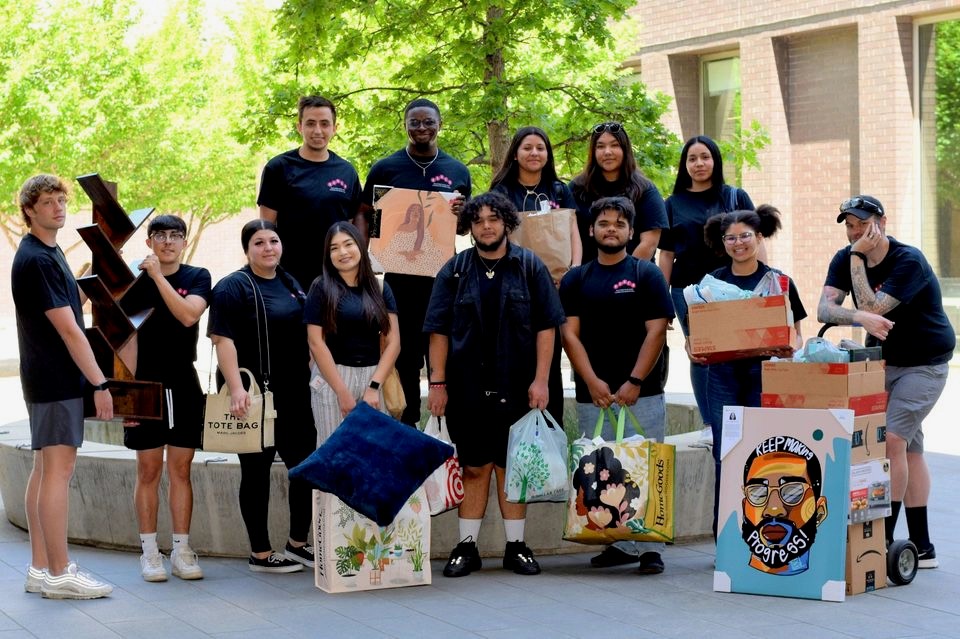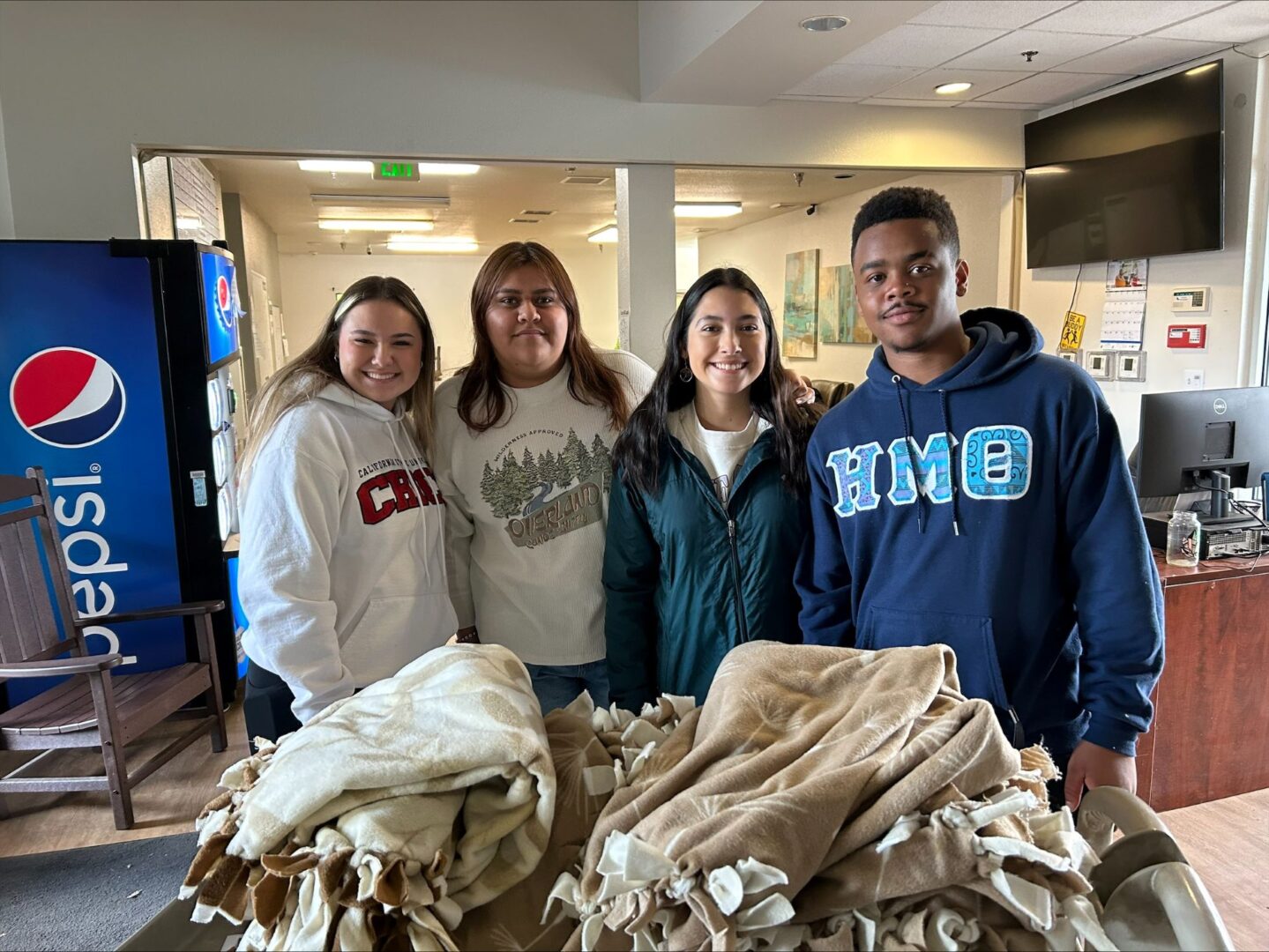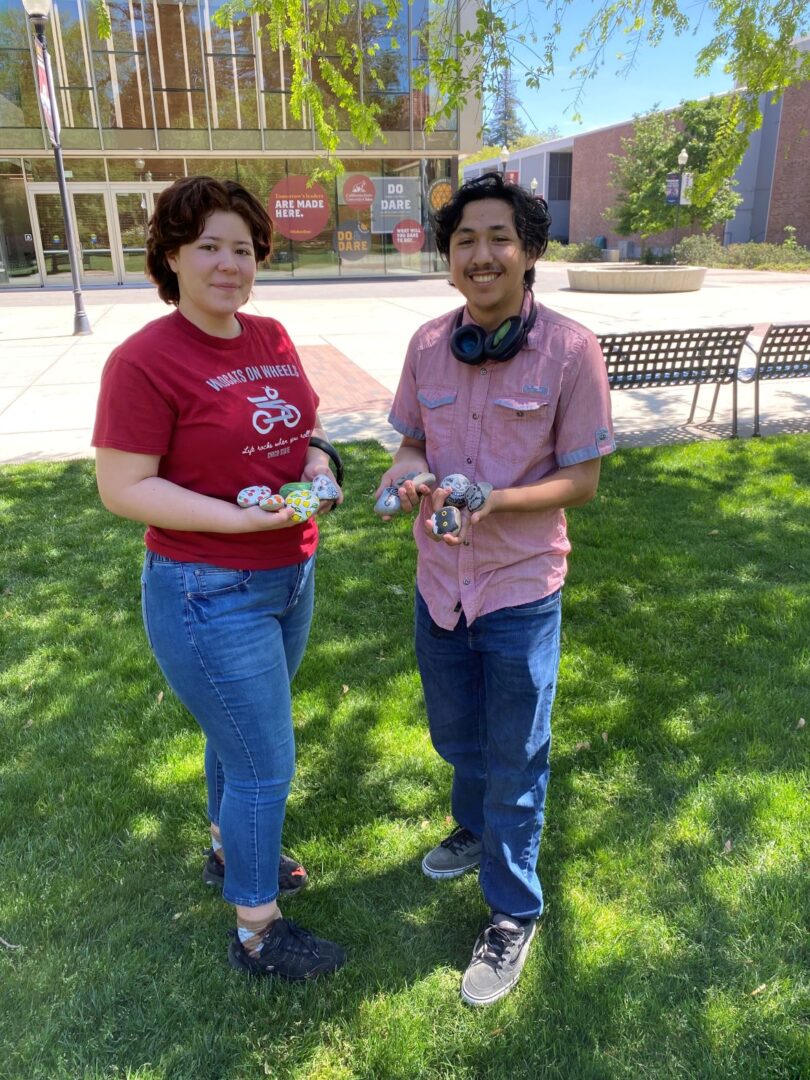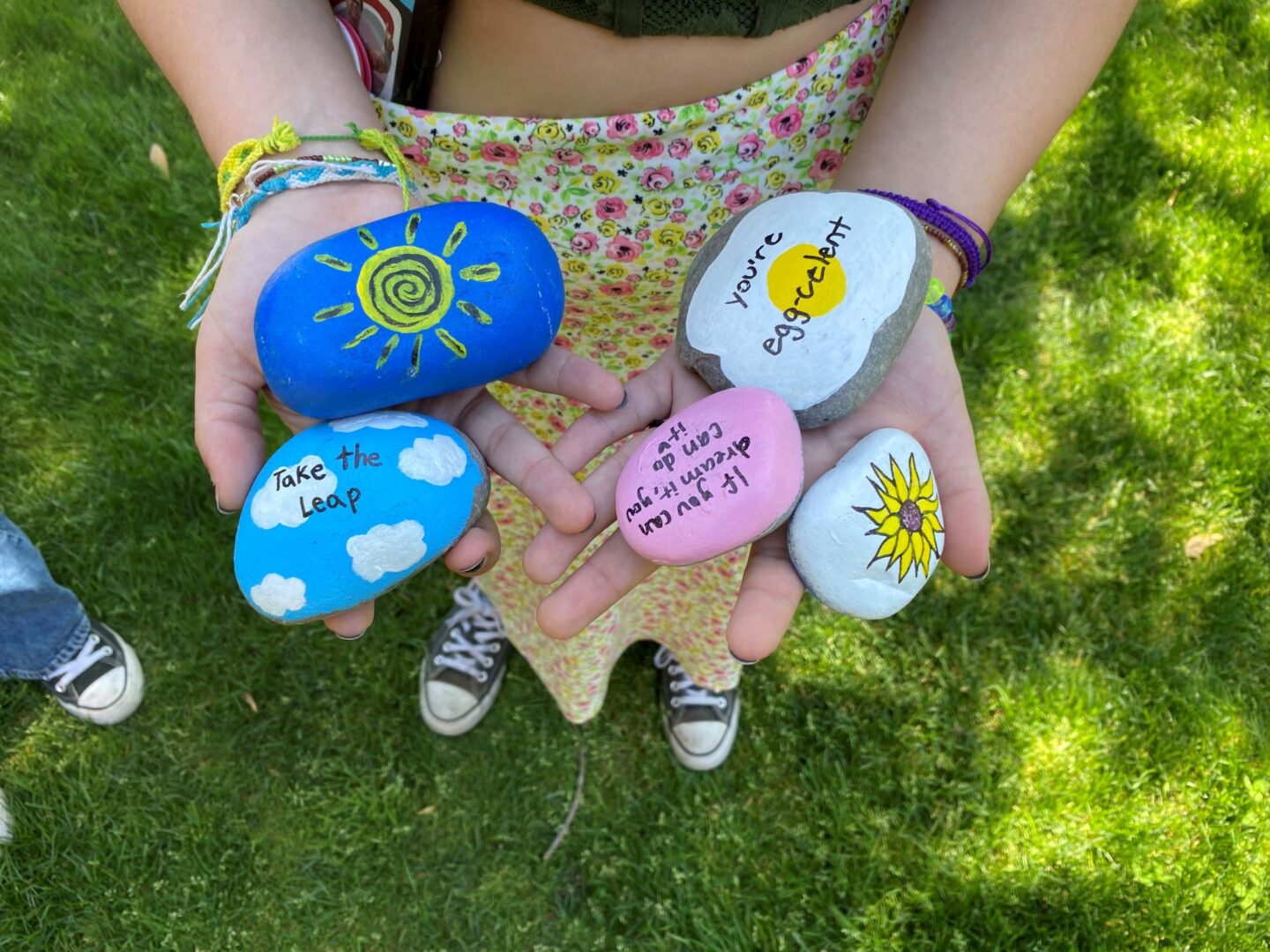REACH Students’ Service Projects Extend Support to Community

This spring, 115 students in Chico State’s Raising Educational Achievement in Collaborative Hubs (REACH) program embraced the opportunity to make a positive impact on their new community while also learning to navigate the transition to college. Their service projects addressed everything from mental health awareness to homelessness to animal welfare throughout Chico.
REACH provides support for first-generation and historically underserved students as they transition from high school to college. About five years ago, a community service component was added to the program to instill in first-year students a sense of purpose and community by encouraging them to give back.
“If you help out the community, then you’re more likely to feel like you’re a part of it,” said Jessica Dietrich, program coordinator for REACH. “Many students are not from here and are still new to Chico. So, we thought, how can our program do something to make an impact and help our students feel a little bit more like they belong here.”
Students—split into 12 hubs or groups—were given the opportunity to select causes that aligned with their values and interests. They had to agree as a team on a project, which taught students to collaborate to find something that all members agreed on.
Marketing major Diego Murillo and his hub first thought of making goodie bags for students but decided instead to partner with an organization working with the unhoused population. As the team discussed homelessness further, they thought about how it can impact anyone, including college students. The group ultimately chose to support Chico State’s Basic Needs Rapid Re-housing, which finds emergency housing for eligible Chico State students who are experiencing displacement, unsafe housing, potential homelessness (eviction), or homelessness.

The REACH students raised money to buy items off a wish list to furnish one of Basic Needs’ emergency houses. The students were able to get most items off the list—a bookshelf, a rice cooker, an air fryer, art, throw pillows, cups, plates, and more.
Murillo and his group split the list into categories, and everyone was responsible for purchasing certain items—he had school and hygiene supplies. He said the experience, which included group trips to the store and building furniture together, was fun but also had a more profound effect on him and the team.
“It feels nice knowing that students will enjoy what we got for them,” he said. “It’s a blessing because we’re helping students find their sense of belonging. And even the smallest donation could make the biggest impact on them. It also made me feel more connected to Chico and I learned to be even more grateful for the things I already have instead of focusing on the things that I don’t have.”

Leah Slem, manager for Basic Needs and the Hungry Wildcat Food Pantry, said REACH students support Basic Needs each semester, usually by volunteering in the pantry during food distributions. This spring, the student group took the initiative to make the Basic Needs shelter house homier.
Basic Needs manages a five-bed, short-term emergency shelter and three community houses through Chico Housing Action Team (CHAT) to prevent student homelessness. The REACH hub helped sponsor a drive to collect items to make the short-term emergency shelter more comfortable and welcoming to students, Slem said.
“We have been wanting to do this project for a long time, but have been unable to secure the funding,” she said.
Other service projects adopted this spring include making blankets for residents of the Torres Community Shelter, handing out rocks painted with positive affirmations to students, collecting donations for the 6th Street Center for Youth, and cleaning up city parks. In past years, students have organized talent shows to collect hygiene products and volunteered with organizations like Wags and Whiskers, True North Housing Alliance, and the Jesus Center.
At the end of the project, students complete a survey to share what they gained from the experience and what it meant to them, Dietrich said. A big takeaway that she sees is self-awareness. Students learn everyone has struggles and certain privileges. They also say they learned to cooperate, communicate with a team and clients, develop organizational skills, and experienced a sense of friendship, compassion, and community, she added.
“It was nostalgic to see the teens and the kids. It reminded me of how far I’ve grown and how much I’ve achieved,” one student wrote about his experience this spring volunteering with the Boys and Girls Club of the North Valley.
REACH graduate assistant Lupita Cabrera, who joined the program her first year, said many of the skills she and her peers learned during the project helped prepare them for college and the workforce.
There are opportunities for problem-solving, delegating, and learning people’s strengths to ensure the project is successful, she said. It puts students in a professional setting and working as a team.
“One of the things that is the best and neatest part of the job here as a professional is the opportunity to see the transformation in students,” Dietrich said. “To be part of that and to witness it, it’s just really amazing.”
To join the REACH program for the 2023–24 academic year, visit the program website and complete an online application. The deadline to apply is Thursday, June 15.



